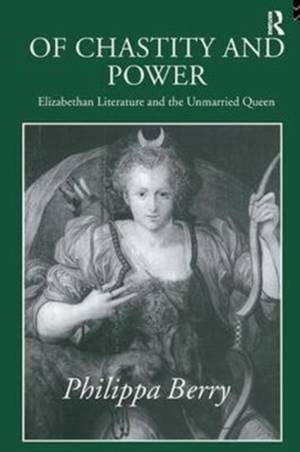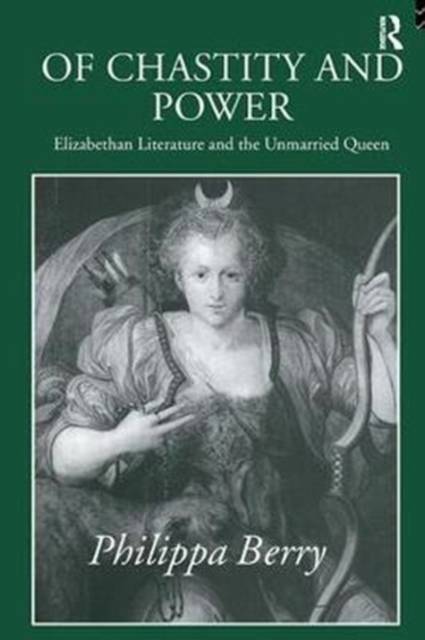
Door een staking bij bpost kan je online bestelling op dit moment iets langer onderweg zijn dan voorzien. Dringend iets nodig? Onze winkels ontvangen jou met open armen!
- Afhalen na 1 uur in een winkel met voorraad
- Gratis thuislevering in België vanaf € 30
- Ruim aanbod met 7 miljoen producten
Door een staking bij bpost kan je online bestelling op dit moment iets langer onderweg zijn dan voorzien. Dringend iets nodig? Onze winkels ontvangen jou met open armen!
- Afhalen na 1 uur in een winkel met voorraad
- Gratis thuislevering in België vanaf € 30
- Ruim aanbod met 7 miljoen producten
Zoeken
Of Chastity and Power
Elizabethan Literature and the Unmarried Queen
Philippa Berry
Hardcover | Engels
€ 256,95
+ 513 punten
Uitvoering
Omschrijving
Elizabeth I was one of the most powerful women rulers in European history. What can feminism reveal about the attitudes of her male subjects towards this enigmatic figure?Through readings of key Elizabethan texts by Lyly, Ralegh, Chapman, Shakespeare, and Spenser, Philippa Berry shows that while Elizabeth's combination of chastity with political and religious power was repeatedly idealized, it was also perceived as extremely disturbing. The figure of the unmarried queen implicitly challenged the masculine focus of Renaissance discourses of love, philosophy and absolutist political ideology.In her exploration of the potent combination of themes of sexuality and politics with classical myth and Neoplatonic mysticism, Berry offers a radical reassessment of the status of `woman' as a bearer of meaning within Renaissance literature and culture.
Specificaties
Betrokkenen
- Auteur(s):
- Uitgeverij:
Inhoud
- Aantal bladzijden:
- 216
- Taal:
- Engels
Eigenschappen
- Productcode (EAN):
- 9781138425736
- Verschijningsdatum:
- 15/08/2017
- Uitvoering:
- Hardcover
- Formaat:
- Genaaid
- Afmetingen:
- 156 mm x 233 mm
- Gewicht:
- 452 g

Alleen bij Standaard Boekhandel
+ 513 punten op je klantenkaart van Standaard Boekhandel
Beoordelingen
We publiceren alleen reviews die voldoen aan de voorwaarden voor reviews. Bekijk onze voorwaarden voor reviews.











